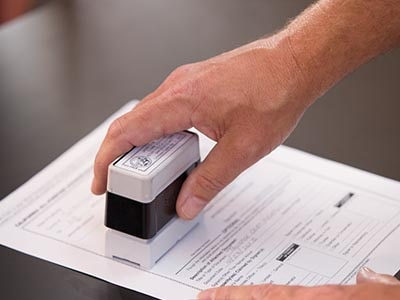Experienced Conveyancer: Browsing Residential Or Commercial Property Transfers with Knowledge
Experienced Conveyancer: Browsing Residential Or Commercial Property Transfers with Knowledge
Blog Article
Demystifying Notarial Job: Simplifying the Duty and Relevance of Notaries
In the intricate internet of legal documentation and confirmation, notaries stand as pillars of guarantee and credibility. Their duty, commonly shrouded in secret for lots of, lugs considerable weight in guaranteeing the legitimacy and stability of vital documents. As guardians of legality and reality, notaries play a crucial component in our society, yet their work is not always fully comprehended. By unwinding the intricacies surrounding notarial methods and losing light on the importance of their acts, a clearer understanding emerges of the crucial role notaries play in supporting the material of legal and contractual contracts.
The Background of Notarial Job
How did notarial job advance with time to become an integral component of legal and business transactions? The background of notarial job dates back to ancient civilizations, where scribes played a vital duty in recording crucial information and confirming files. As societies progressed, the demand for a more formalized system to guarantee the credibility of arrangements emerged. This led to the development of notaries, individuals assigned by the state to serve as neutral witnesses in lawful issues.
Throughout the Center Ages, notaries gained prestige in Europe, with their features increasing to include preparing lawful papers, licensing signatures, and preserving documents. The increase of worldwide profession further emphasized the significance of notarial job in validating contracts and contracts across boundaries.
In the modern period, notaries remain to play a crucial function in legal and company purchases by validating identifications, confirming the authenticity of records, and stopping fraudulence. Their function in certifying the credibility of agreements adds a layer of safety and security and depend on to the ever-evolving landscape of commerce and regulation.

Responsibilities and Responsibilities of Notaries
Notaries play an essential duty in confirming the credibility of records and the identification of notaries. One of their main duties is to witness the signing of essential records, such as actions, wills, and contracts, to ensure that all parties are entering into agreements purposefully and voluntarily.
They certify duplicates of original records, giving assurance to organizations that the copies are real replicas of the originals. In general, the tasks and duties of notaries are important in guarding the stability and legitimacy of different records and transactions - Conveyancer.
Notarial Certificates and Signatures
Exhibiting thorough focus to detail, notarial certifications and trademarks function as necessary elements in validating the authenticity of legal documents. Notarial certifications normally include important details such as the day of registration, the names of the signatories, a description of the record, and the notary's official seal. These certificates give a clear document of the notarial act, making certain that the file can be easily recognized and mapped back to the notary who looked after the procedure.
Trademarks play a pivotal duty in notarial job, as they represent the arrangement and approval of the parties included. Notaries meticulously witness the signing of records to validate the identification of the signatories and validate that they are signing of their very own free choice. By fastening their main seal and signature to the file, notaries certify that the needed procedures article source have been adhered to and that the file is valid and enforceable.
Essentially, notarial certifications and trademarks are the hallmark of authenticity in lawful deals, giving guarantee to all events involved that the files are legit and binding.
Significance of Notarial Acts

Notarization Process Described
The notarization process normally starts with the private offering the record to a notary public. Once the identity is validated, the notary guarantees that the specific signing the file does so voluntarily and without any kind of coercion.

Conclusion

Notarial certificates normally contain crucial information such as the day of registration, the names of the signatories, a summary of the file, and the notary's main seal. These certificates provide a clear record of the notarial act, guaranteeing that the file can be easily determined and mapped back to the notary that supervised the process.
By fastening their main seal and trademark to the paper, notaries license that the essential treatments have been adhered to and that the record is enforceable and legitimate.
By confirming the identity of the signatures, confirming their determination to enter into the agreement, and licensing the day and area of the signing, notaries play an essential duty in promoting the validity of lawful files.After the paper is signed, the notary will affix their main seal or stamp onto the record.
Report this page